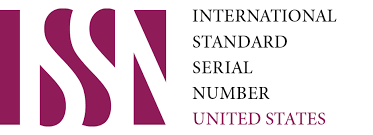Effective strategies to teaching writing
Keywords:
writing, teaching writing, learning processAbstract
Today, it is very important for everyone to know foreign languages. The world becoming increasingly globalized and bilingual is becoming the need of the hour. Since we have set ourselves the goal of building a competitive country, from now, our graduates of schools, lyceums, colleges and universities must have a perfect knowledge of at least two foreign languages. As it is known, there are four basic skills that every learner should acquire. They are listening, reading, writing and speaking. In this article the most crucial skill, writing, how to teach writing effectively with some strategies in the classroom are going to be discussed. It is impossible to simply describe what a good lesson should consist of due to the many variables that impact learning and understanding, including the individuality of every group of students, there are certain strategies that are widely considered to be helpful. That is why, some of the strategies is going to be discussed in this article.
References
Charles and Jill Hardfield, Writing Games.(England: Longman,2005).p:37
Jeremy Harmer, How to Teach Writing. op.cit. p: 67
Ann Raimes, Techniques in Teaching Writing. (Oxford: Oxford University Pree, 2000) p:27
Hornby, op.cit., p:528.
Andrew Wright, et. al, op.cit
.Saidova, M. U. (2019). THE STRUCTURAL COMPOSITION OF THE LITERARY TERMS IN LITERARY DICTIONARY" LITERARY TERMS AND LITERARY THEORY" BY JA CUDDON. Международный академический вестник, (1), 73-76. https://www.elibrary.ru/item.asp?id=36875142
Саидова, М. У. (2021). К. БОЛДИКНИНГ “АДАБИЁТШУНОСЛИК ТЕРМИНЛАРИНИНГ ҚИСҚАЧА ИЗОҲЛИ ОКСФОРД ЛУҒАТИ” ДАГИ ЯСАМА АДАБИЁТШУНОСЛИК ТЕРМИНЛАРИ ТАҲЛИЛИ. МЕЖДУНАРОДНЫЙ ЖУРНАЛ ИСКУССТВО СЛОВА, 4(2). https://tadqiqot.uz/index.php/art/article/view/3240
Downloads
Published
Issue
Section
License

This work is licensed under a Creative Commons Attribution 4.0 International License.
User Rights
Under the Creative Commons Attribution-NonCommercial 4.0 International (CC-BY-NC), the author (s) and users are free to share (copy, distribute and transmit the contribution).
Rights of Authors
Authors retain the following rights:
1. Copyright and other proprietary rights relating to the article, such as patent rights,
2. the right to use the substance of the article in future works, including lectures and books,
3. the right to reproduce the article for own purposes, provided the copies are not offered for sale,
4. the right to self-archive the article.













